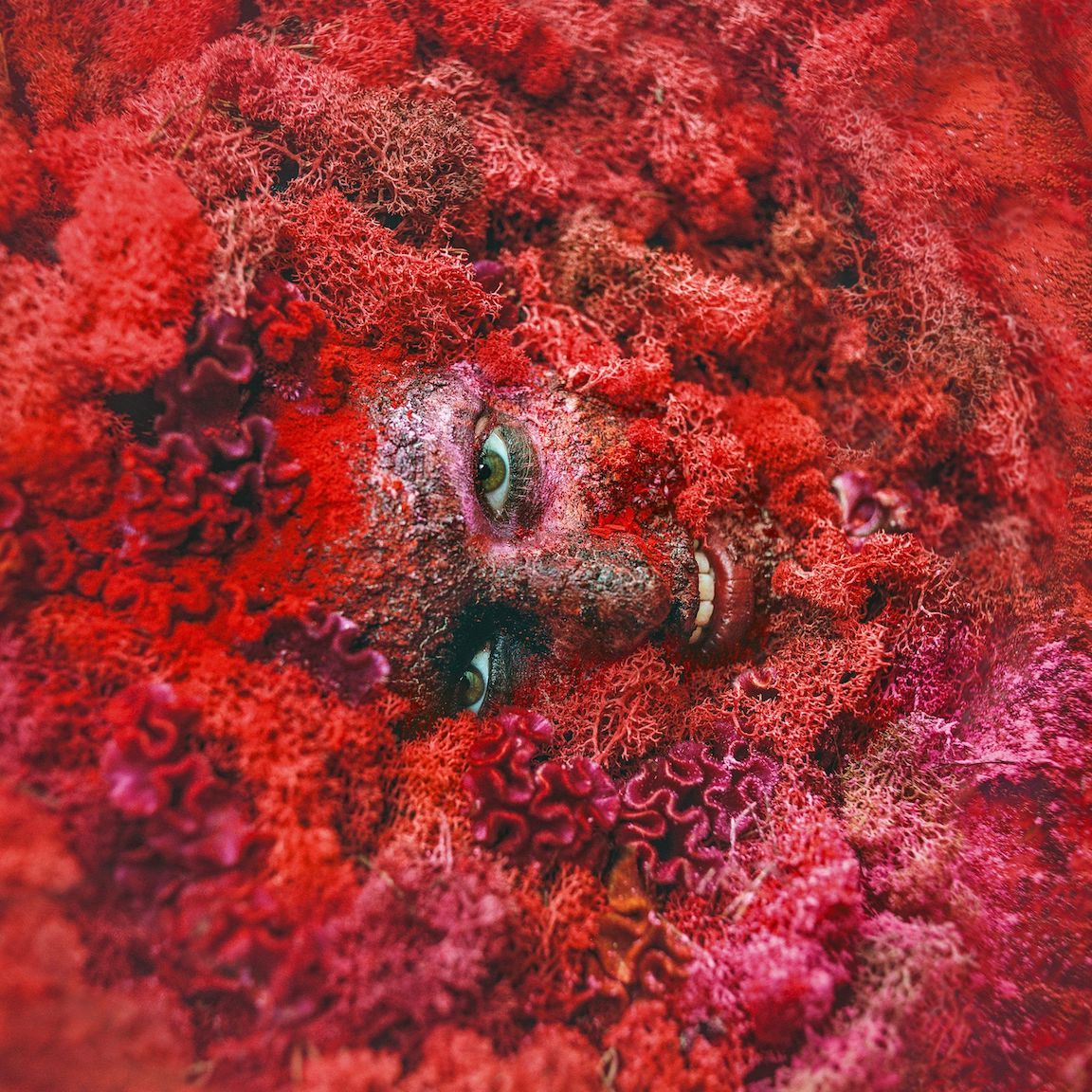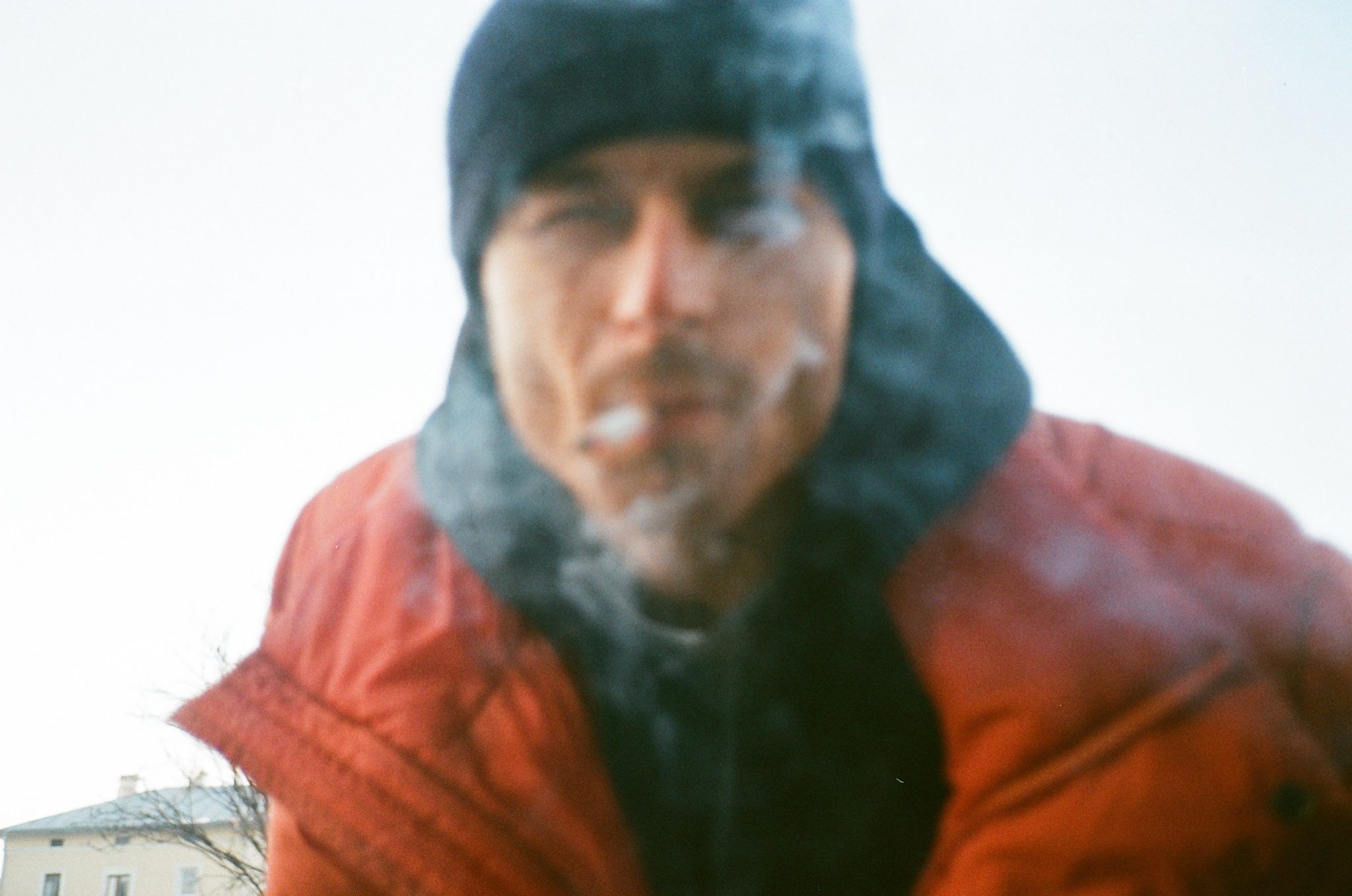JASSS: Wild Dreaming in a World of Service
|Cassidy George

Walking through a dimly lit parking lot and up an intimidating set of stairs to greet Silvia Jiménez Alvarez – best known by her musical moniker, JASSS – I had that same sense of anticipation whenever I start watching a David Lynch film: a kind of nervous excitement of the unknown and unusual things awaiting me.
The DJ and producer JASSS has been called “fearless” in the club circuit for her uncompromising and unexpected sets, and her propensity to play things for people that they don’t yet know they want to hear. With each new album and EP release, Alvarez re-introduces herself to the world, showcasing an evolved identity that is mirrored with a new sound.
Last month, she unveiled the latest stage in her artistic evolution with A World of Service, a delightfully labyrinthine album full of twists and turns, heavy with an uncanny atmosphere. A master of surprise, Alvarez’ latest work infuses pop and rock influences into an experimental electronic sound, where you can hear the influence of Zero 7 on one track and L7 on the next. Her metamorphosing vocal presence, which ranges from soft and alluring to robotic and caustic, lingers in both the ear and in the psyche. Loosely described as “baroque, industrial pop,” Alvarez’s album is intentionally unplaceable, and succeeds in its attempt to evade description by common genre parlance.
But the experience of A World of Service extends beyond the auditory. Shot by MATT LAMBERT, the album’s vivid red cover shows Alvarez’ face fused into a coral reef from another planet. Utilizing zero digital manipulation, the set was constructed by Lambert and his team, who with foam, flowers, make-up, paint and soil, transformed Alvarez into a character that is eerily reminiscent of the monster from Lynch’s Mulholland Drive. The record also has a unique olfactory identity. The sleeve contains a scent that’s reminiscent of wet earth, co-designed by Alvarez with a perfumer in Barcelona, Meri Bonastre. “It’s one of those smells that puts you in your place immediately, like that grounding feeling you get after it rains – something we’ve all felt, but that no one really vocalizes,” Alvarez said. This was also Alvarez’s musical task in A World of Service. Her fluid soundscapes explore the feelings and phenomena for which words do not suffice. In her latest release, she parses out the complexities of the amorphous topics she is still processing, like sexuality, gender and intergenerational trauma – the origins of every day anxieties.
The Lynchian mood quickly evaporated as I was welcomed into Alvarez’ warm studio space, although she upheld her reputation for delivering the unexpected. Alvarez was playing her favorite Tina Turner deep cut, a collaboration with Barry White called “Never in Your Wildest Dreams.” We both laughed at the melodrama of their eroticism, and basked in the glory of the track’s unapologetic and unpretentious cheesiness.


Cassidy George: A World of Service was 3 years in the making. How much did your vision of the album change?
Jasss: It’s only a ghost of what it was three years ago. Most of the final version was made during the pandemic. When everything stopped, I had the kind of revelations you can only have when the world has stalled and you’re not constantly influenced by the projections of other people. And purely from the standpoint of the fact that one day you’re gonna die, it’s important to ask yourself: how do you want to spend your time? What do you really want? It’s difficult to know when you have so many notions floating around you. It’s only when everything falls that you’re actually free to operate.
It sounds like isolation ushered in a purification process.
When you grow up, you’re influenced by what you hear and the situations you’re in, and that’s what informs your understanding of the world later on. That’s all social circumstances, right? The same thing happens when you’re older and you start understanding what you’re doing in terms of industry standards, because those are also socially constructed. How much you buy into them is only a matter of how much time you spend immersed in that environment, and if you spend a lot of time in that environment, you will start justifying decisions that before were not justifiable.
I think of it like this: imagine you’re thirsty one day and someone hands you a Coca Cola. If you’re used to drinking water, you’ll find that drinking it actually makes you even thirstier. But if you reach a point where you are constantly offered Coca Cola, you develop a thirst for the wrong thing – for the thing that actually keeps you always, endlessly thirsty. I didn’t want this album to be motivated by that kind of thirst.
Have you fallen into this “thirst trap” or avoided it?
It’s a mix. I used to have a very romanticized view of the [electronic music] industry, but now I don’t think you can have any sort of career without drinking Coca Cola. That’s bullshit. We’re past that point. You can’t profit from touring and playing parties and doing these kinds of gigs and claim you aren’t drinking Coca Cola – although you can choose when you drink it and who you drink it with. This industry couldn’t generate the kind of money it generates nowadays without it. I mean it’s capitalism. It is what it is.
What informed this romanticized view? The club world you grew up in?
My musical coming of age basically happened on Soulseek, where I discovered all kinds of crazy music, and then went into chats where people from all over the world showed me more.
I also learned from the Soulseek chat rooms that – while it’s obviously a beautiful thing to be on the receiving end of this kind of sharing of knowledge – the other side is also beautiful. That’s why I don’t fully understand gatekeeping. It feels really good to give, it feels really good to share. Giving something to someone else gives something to you too.

You’re from Northern Spain, right?
I’m from Asturias, which is next to Galicia. It’s very rural. It’s basically a community of villages, cows and some small towns. For a long time, one of the biggest industries there was coal mining, so it was quite working class. We had a big communist population that was hit really hard by the war and by Franco. In Spain, you can really feel the 40 years of dictatorship in the culture and in the people. For my grandparents, the war was completely traumatizing. They lived through famine and violence. Imagine PTSD from wartime and then imagine that the Fascists actually won, and then you have to live through the entire Franco era. Spain basically shut down, culturally speaking, and nothing was coming in from outside – so there was this kind of starvation. There was a lot of repression and a lot of fear, in general. My parents grew up listening to those stories and inherited this intergenerational fear of the world, a fear of anything different.
Do you also carry the weight of those 40 years of dictatorship?
How did it affect me? Well, I was different – and I grew up in a different time. And I was a single child, so it had to be difficult for my parents to realize that their child is not going to follow the path that society has placed for them, and because of that, she’s going to suffer. In the village mentality, there aren’t that many options: you have to choose your personality and path from like 4 boxes, and if you don’t suit any of those, you will probably have a hard time – at least for a chunk of your lifetime. I chose this path, music, because I felt it was my best shot at existing, basically.
Did you try to smoosh yourself into one of these four boxes?
Of course I tried, but it wasn’t my actual self. It was my younger, teenage self that very naturally wanted to fit in and find a community. Also, growing up where I did, if you don’t fit into these boxes, you constantly feel othered because you don’t actually see anything that mirrors yourself anywhere. That’s a trigger to dream big, which is a great skill, but it’s also a rough reality. I feel like anxiety is a response to this. It makes me think of what Mark Fisher said about anxiety and depression in societies of capitalism – they aren’t situational, they’re systemic. How can it be that depression is something that comes with being a teenager by default? It’s normalized, given the speed of our world, but it’s not normal at all.
When I came to Berlin, I felt like I belonged because I could see myself in the behavior of other people. It’s not the same effect of having women as role models in the government, or seeing “representation” in these figures that in theory are like you, but in reality aren’t at all. You can’t feel any actual connection to them. Here, you can feel connected to people when you realize that they care – and don’t care – about the same things as you.

Role models are overrated.
Like on Instagram, for instance. Of course you can look up to anyone, because there’s so much content out there to pick from, but what are you really looking at?
The other day, I was speaking with an artist about some of the homophobia and misogyny I experienced on tour. They said, “I knew you were gay, but you don’t really talk about it.” I actually am as vocal about it as one can be, I just don’t display it [online] with a specific intention. But her question made me think about how identity is not perceived as “real” unless it is shown in a very particular way [on social media]. Perhaps this “invisibility” comes with the notion that there are still only a handful of ways to express identity, and if you stay from that, it goes unnoticed.
As a queer person, I celebrate that there is so much more discussion around topics like gender and sexuality. People who exist outside the confines of heteronormativity have historically been and are being denied the rights to exist as they are, or even to get to know themselves. Speaking about these things is beneficial for everyone, and part of a healing process. But it also creates pressure to belong to some sort of leadership. I am happy to be a role model for someone, but that’s not really my intention. I am not trying to be an icon of queerness, and that’s often how I experience queer identity on social media. So many icons have come before me and that is why I get to do what I do today and be who I am. When I read about these topics and discuss it with others, it gives me so much – but the best way for me to give back is through sound, because it allows me to translate my experience more accurately.
How did you vocalize that in A World of Service?
Every track, in some way, has to do with what’s missing, and having feelings that you are unable to articulate. It’s about being misunderstood and hitting that wall: it can be with another person, an institution, an industry, or even the world. For example, the track “Vapor Dentro” – which literally translates to “vapor inside” but when you say it out loud in Spanish, it also sounds like “it’s within” – is about the death of my grandparents. It’s about the differences between generations, the history and trauma accumulated, and the difficulties and nuances within relationships, and what falls through the gaps of age and gender. The song “Camelo” is a song about shitty love. It’s more of an observation, it’s not about blame. I’m looking at the details of bad communication and detachment from rational feeling. And “Luis” is a love song to a friend that sounds like a love song to a lover, because it’s about longing and separation, and what gets lost in translation.
Do you worry that you will be misunderstood in making music about misunderstandings?
To be honest, I don’t even think that I accurately expressed what I wanted to in the album. That’s fine, because I do feel like I’m starting to construct a language that allows me to say what I really want to say, and that language can morph over time. But really, none of my output is mine. It’s a product of everything around me. Maybe the collage is mine, or the way I orchestrated it is authentically mine, but when a record comes out, it no longer belongs to me.
Art is very self absorbed. It’s all happening in your head. You’re in a space where you’re constantly orbiting around yourself, and that can be really sickening. You have to let things go to complete them, to close the cycle. Otherwise, you’re just mentally masturbating, the process of creation won’t be satisfying. When an album is released, I love that I can surrender my authority. I can’t control what people feel when they listen to it. It’s the end of the road. My job is done.
Listen to A World of Service HERE
Credits
- Interview: Cassidy George
- Photography: Matt Lambert


